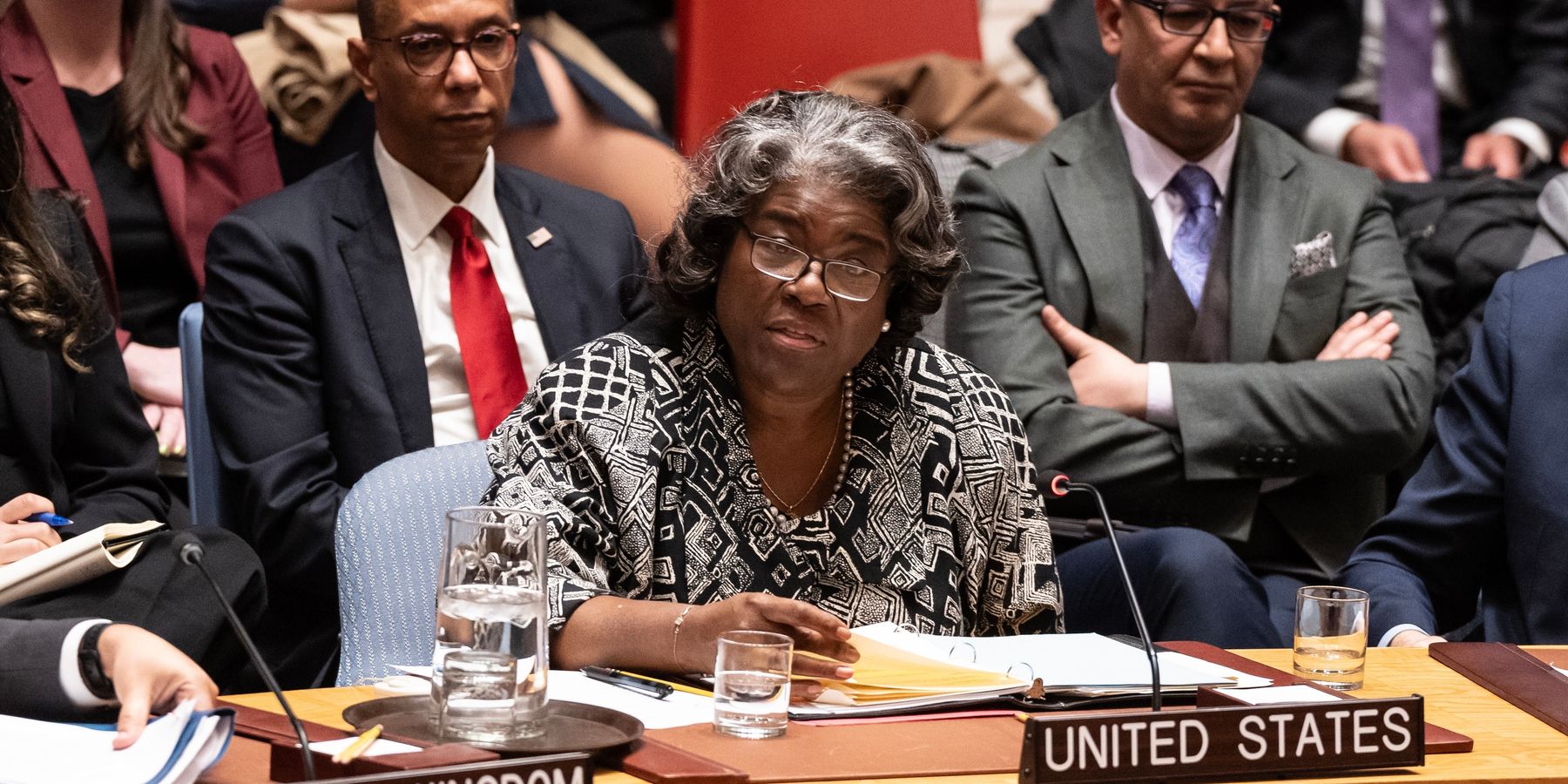On the day the U.N. Security Council passed a resolution demanding a ceasefire in Gaza, U.S. State Department spokesperson Matthew Miller deflected press questions about whether the U.S. would compel Israel to comply by saying that the resolution was “non-binding.”
He went on to say that “it’s nonbinding in that it does not impose any new obligations on the parties, but we do believe it should be respected, that it carries weight, and that it should be implemented, as has always been our belief when it comes to UN Security Council resolutions.”
Contrary to the U.S. position, U.N. ambassadors from China and Mozambique, as well as the UK's former U.N. envoy, have publicly stated that it is binding, along with U.N. Secretary General spokesperson Farhan Haq, who said “all the resolutions of the Security Council are international law, so to that extent, they are as binding as international law is.”
The resolution, which passed last week with 14 votes in favor and one abstention from the U.S., primarily demands an immediate ceasefire for the month of Ramadan, the immediate and unconditional release of all hostages, and guaranteed humanitarian access to address their medical and other humanitarian needs.
Resolutions are formal expressions of the will of the Security Council and are backed by the power of international law. Experts who spoke with RS counter the U.S. position, saying that implicit in the resolution is an obligation for the parties involved to comply. Meanwhile, they say it is understood that member states, collectively or on their own, can take measures that will compel parties to comply.
More importantly, experts complain that Washington appears to be selectively interpreting international law to favor its political objectives — in this case to protect Israel — an action that could have consequences for its legitimacy in the eyes of the rest of the world moving forward.
International law scholar and Yale Law School professor Asli Bâli said Article 25 of the U.N. Charter suggests that all the council’s decisions are to be deemed binding. It states that U.N. members “agree to accept and carry out the decisions of the Security Council in accordance with the present Charter.”
Some argue that this passage only applies to resolutions that reference Chapter 7 of the charter, which outlines the powers the council has to respond to security threats. Bâli disagrees, citing a 1970 decision from the International Court of Justice in which the justices agreed with the broader reading of the U.N. charter.
Another dispute over what constitutes a binding resolution has to do with what language is being used. Eran Sthoeger, a lawyer and adviser on international law, says that along with clear reference to Chapter 7 and Article 39 of the charter, which empowers the Security Council to assess threats to international peace and security, the Security Council uses the term “decides'' when it wants to be clear that a resolution is binding. Since none of these elements are present in the ceasefire resolution, it should not be considered binding on members, Sthoeger argues.
However, international law scholar and Washburn University Professor Craig Martin told RS that, while this resolution does not use the exact word “decide,” the language of making a “demand” similarly creates an obligation on member states.
“It’s hard to understand how anyone could suggest there is any ambiguity or uncertainty of the obligation this creates,” he said.
Bâli cites previous resolutions passed by the council that demonstrate that the use of the word “decide” is not needed for a resolution to be treated as binding and enforceable. One example is Resolution 678, passed in 1990 in order to provide Iraq with a final chance to withdraw forces from Kuwait, in which the council “demand[ed] that Iraq comply fully with resolution 660 (1990) and all subsequent relevant resolutions.” Iraq’s failure to comply with that resolution triggered military action from member states, led by the U.S.
Ian Hurd, a professor at Northwestern University who focuses on international law, said retroactive disputes over whether the resolution is binding are reflective of the U.S. attempting to interpret international law in a way that advances its interests.
“The U.S. is trying to split the difference between its friends and its enemies and find its own advantageous path,” Hurd told RS. Bâli adds that the U.S. claiming the resolution is non-binding means that it can defend supplying arms to Israel.
The U.S. position is not without potential consequences. Washington’s insistence that this resolution is non-binding in the face of well-established interpretation of charter provisions and Security Council precedent "is once again eroding the normative power of the international legal system," Martin said, adding that it contributes to a growing perception that international law is an instrument of political power for the U.S. and its allies.
By abstaining on the ceasefire vote, Hurd says, the U.S. nonetheless increased its pressure on Israel to protect civilians and to follow humanitarian law in Gaza. How the U.S. responds if Israel does not comply with this resolution will reveal whether Washington intends to take a firmer stance on this issue, or not.
- Pressure on Biden for Gaza ceasefire appears to be working ›
- Why US ceasefire proposal failed at UNSC ›
- Who gets a veto is critical to reforming UN Security Council | Responsible Statecraft ›
















